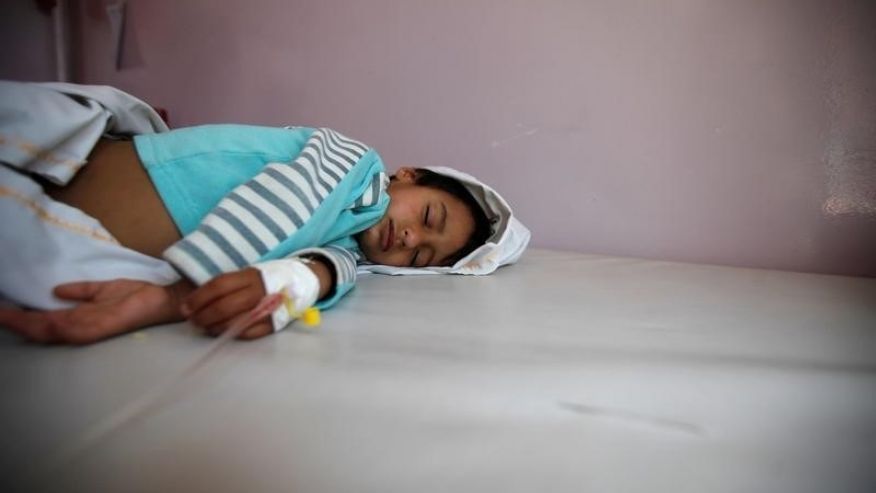More than 200 cholera cases have been reported in Yemen’s capital Sanaa as contaminated water and poor sanitation lead to a sharp rise in the transmission of the deadly disease.
Cholera is one of several risks to civilians, but a rapid advance of the disease would add a new dimension to an unfolding humanitarian disaster.
“In the last few days we’ve received more than 200 patients with cholera,” a nurse at the Jumhouri hospital in Sanaa told Al Jazeera on Saturday.
“Two patients died because they were in bad condition and they came here too late.”
Khabar agency, a local news website, reported 10 deaths across the country on Saturday, citing information provided by the Ministry of Public Health.
Abdul Hakim Kahlani, the official spokesman of the ministry, told the website that there were three confirmed deaths in Sanaa, three in Ibb province and four in Hodeidah province.
The streets of Sanaa and its suburbs have been littered with piles of garbage, and families living in close proximity have been some of the hardest hit.
Street cleaners have repeatedly called on the government to increase wages and a strike over pay has lasted seven months.
“We drink from a well that distributes water to the whole district,” a resident told Al Jazeera.
“We never got sick in the past but lately we’ve had a crisis with garbage in the city and it’s caused severe diarrhoea and vomiting. It’s horrible.”
Yemen has been battling a cholera outbreak since mid-October 2016.
Out of 23,506 suspected cases there have been 108 associated deaths.
Cholera is a disease that is transmitted through contaminated drinking water.
Most sufferers exhibit mild symptoms that can be treated with oral rehydration solution, but the disease can kill within hours in severe cases if not treated with intravenous fluids and antibiotics.
The war in Yemen has killed more than 10,000 people, left 7.4 million children in need of medical help, nearly 2.2 million malnourished, and around 462,000 at risk of severe acute malnutrition, according to the UN children’s agency UNICEF.
[Source: Al Jazeera]





 WhatsApp us
WhatsApp us 

